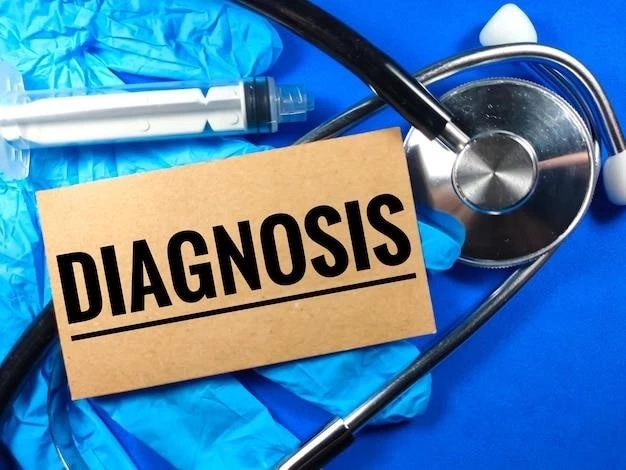Introduction to Mucopolysaccharidosis
Mucopolysaccharidosis involves the abnormal accumulation of sugar molecules in body tissues due to lysosomal enzyme deficiencies, leading to various symptoms and impact on individuals.
Mucopolysaccharidosis, a group of genetic disorders, results in the accumulation of sugar molecules in body tissues due to enzyme deficiencies, leading to various symptoms affecting individuals. This rare condition requires comprehensive understanding and management for improved outcomes.

Types and Symptoms of Mucopolysaccharidosis
Mucopolysaccharidosis encompasses various types with distinct symptoms due to the abnormal accumulation of sugar molecules in body tissues.
Definition and Overview
Mucopolysaccharidosis (MPS) is a group of genetic disorders leading to the accumulation of sugar molecules in tissues due to enzyme deficiencies, resulting in a range of symptoms and complications requiring specialized care and interventions to manage the disease effectively.
Mucopolysaccharidosis Type II (MPS II)
Mucopolysaccharidosis Type II, also known as Hunter syndrome, is a rare genetic disorder that affects the body’s ability to break down long chains of sugar molecules, leading to various symptoms and complications in different body parts.
Mucopolysaccharidosis Type III (MPS III)
Mucopolysaccharidosis Type III, also known as Sanfilippo syndrome, is a rare genetic disorder that primarily affects the central nervous system, leading to neurodegeneration, intellectual disability, and various systemic complications, requiring specialized care for management.
Causes and Diagnosis of Mucopolysaccharidosis
Mucopolysaccharidosis stems from genetic defects causing enzyme deficiencies, resulting in sugar molecule accumulation in body tissues and a challenging diagnostic process.
Genetic Basis of Mucopolysaccharidosis
Mucopolysaccharidosis is primarily caused by genetic defects leading to deficiencies in enzyme activity involved in the degradation of glycosaminoglycans (GAGs), resulting in their abnormal accumulation in various tissues and organs.
The diagnosis of Mucopolysaccharidosis can be challenging due to the diverse range of symptoms and the need for specialized tests to identify the specific enzyme deficiencies involved in the abnormal sugar molecule accumulation. Different diagnostic approaches such as genetic testing, enzyme assays, and imaging studies are essential in confirming the presence of the condition and determining the appropriate management strategies for affected individuals.
Treatment Options for Mucopolysaccharidosis
Mucopolysaccharidosis can be managed with treatments tailored to individual symptoms and may include enzyme replacement therapy, hematopoietic stem cell transplantation, and other supportive interventions.
Diagnostic Challenges and Approaches
Diagnosing Mucopolysaccharidosis presents challenges due to the varied symptoms and the need for specialized tests like genetic testing, enzyme assays, and imaging studies to confirm the presence of the condition.
Hematopoietic Stem Cell Transplantation (HSCT)
Hematopoietic stem cell transplantation (HSCT) is a treatment option for Mucopolysaccharidosis that involves transferring stem cells from a healthy donor to help restore enzyme function and reduce the accumulation of abnormal sugar molecules in the body tissues. This procedure aims to slow down disease progression and improve the quality of life for individuals affected by Mucopolysaccharidosis.
Prognosis and Management of Mucopolysaccharidosis
Mucopolysaccharidosis prognosis varies, requiring specialized management to address symptoms across different types and their impact on individuals’ well-being.
Disease Progression and Life Expectancy
Mucopolysaccharidosis exhibits varying disease progression based on types and individual factors, impacting life expectancy and necessitating tailored management strategies to address the evolving clinical manifestations.

Research and Developments in Mucopolysaccharidosis
Explore innovative therapies and upcoming research initiatives aimed at improving outcomes and addressing the complexities of mucopolysaccharidosis.
Innovative Therapies and Future Prospects
Advancements in research are paving the way for innovative therapies like gene therapy and enzyme replacement therapy to improve outcomes and quality of life for individuals with Mucopolysaccharidosis. These promising developments offer hope for better management and potential treatment options for this complex genetic disorder.
Impact of Mucopolysaccharidosis on Patients and Families
Discover the emotional and social implications that mucopolysaccharidosis has on individuals and their families, exploring coping strategies and support systems.
Psychological and Social Considerations
The impact of Mucopolysaccharidosis on patients and their families extends beyond physical health, leading to psychological challenges and social adaptations. Understanding the emotional aspects and social dynamics can help in providing holistic care and support for individuals affected by this rare genetic disorder.
Awareness and Support for Mucopolysaccharidosis
Explore resources and organizations offering support and information for individuals and families affected by mucopolysaccharidosis, promoting awareness and facilitating access to specialized care.
Organizations and Resources for Patients
Discover various organizations and resources dedicated to supporting individuals and families impacted by Mucopolysaccharidosis, providing valuable information, assistance, and community for those affected by this rare genetic disorder.
Conclusion⁚ Advances in Understanding Mucopolysaccharidosis
The evolution of research and knowledge surrounding Mucopolysaccharidosis highlights the importance of early detection, comprehensive care, and advancing treatment modalities for improved outcomes.
Importance of Early Detection and Comprehensive Care
Early detection and comprehensive care play a crucial role in managing Mucopolysaccharidosis, enabling timely interventions and personalized treatment plans to improve outcomes and quality of life for individuals affected by this complex genetic disorder.
